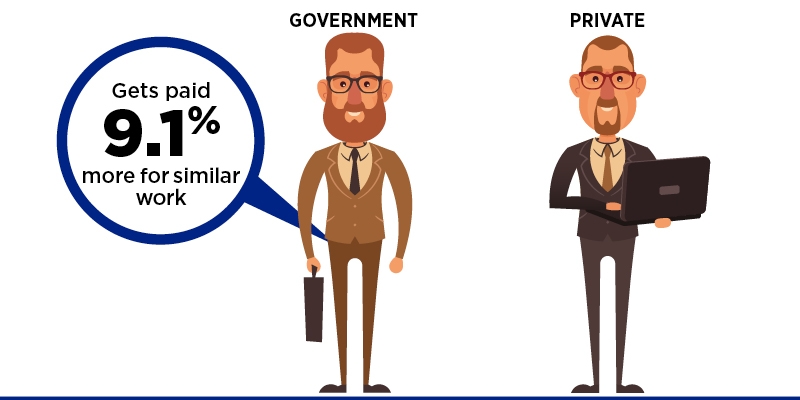Does it pay to work in Government?
Update: December 2020
In my last post, I spoke about my exit from my previous job and how the whole thing seemed unnecessary. It was the right move from a business perspective because I was deadweight in the capacity that I held, but there was a room where I could have made a bigger impact.
Five months later, I have officially severed ties, and I am on to a new appointment. In that time, I slept a lot, watched a lot of television, and because that was getting boring, I started an online Ph.D. program in Economics. All I have to say about that is I wouldn't recommend unless you are hell-bent on becoming a Doctor of Economics, plan to be a professor, or just want to level up, and you're really good at math.
That aside, I've also assumed a new role in the Public Sector, yes, the Public sector!! The promise of this 2-year position, contract position( the distinction is significant), is that I get to work on things at a level that not many people do, and you get to make an impact. In many countries worldwide, young men have to serve a mandatory term in the army; South Korea, Austria, and Azerbaijan come to mind. Luckily we do not have that problem in Jamaica in a way I see this is my 2-year sentence, I mean service, for my country. Before I do whatever the hell I want to do with my life.
As of writing this post, I have spent roughly 3 weeks in government so far, and I must say a few things:
1. Work hours: 8:30 am to 5 pm ( Monday to Thursday) and to 4pm on Fridays is not the way to go. With the pandemic, we've realized that much of the work that we do isn't all that essential, a lot of it can be done from home, we don't need to be constricted by industrial-era factory hours, and most importantly the workweek can be shorter.
I hope I get to look at the public sector transformation/modernization framework to see if we can move along with this information government thing. If not surpass but at least catch up with the private sector
2. Patience is more of a necessity than a virtue. It takes a while to do things in government. When I was acting manager at the previous job, I resolved a matter within 3 days that could take up months to do if left to its own devices, and that is because I stepped in and did it myself. Efficiency, accuracy, and expediency are my buzz words. In government, just the word procurement invokes feelings about how long it will take to get things done, as well as the word approval. Certain approvals can take weeks or months, depending on who has to approve them. I am very used to emailing or calling the CEO and getting things done immediately. I guess patience will definitely need to be at the forefront of my expectations.
While the notion of accountability and transparent policies ring deep in the government landscape and for corruption prevention. I have learned firsthand that private shareholders are more powerful than voters. Voters have to wait for an entire election cycle to vote out a government, and if the money goes missing, investigations are held, somebody may be charged, but often, nothing comes from it. In the private sector case, if shareholders choose to punish a company, it can be instantaneous. Dumping stocks can cause share price and market capitalizations to nose dive, management can be removed once the majority of shareholders agree, and publicly traded firms are not only subject to their shareholders, they are subject to auditors, regulators, customers, bankers, and the court of public opinion.
3. Things move at a slower pace; I am very used to a fast-paced, dynamic work environment where things are done rather quickly; even though I had my complaints about how slow the internal processes were, none of that compares to this. While I do have control over my work, the speed at which work is assigned is slower. Being a full-time student, I'm grateful as it allows my brain to split focus while remaining engaged but moving faster means that we can achieve a lot more in a faster time.
4. Change is not all good; with more millennials in the workforce, how we think represents counter-culture. Work for us is not just something we do to get paid; we experience work just as we experience life. Since we spend most of our time doing it, we want to be engaged in what we do and see how the work we do can impact the world. But a lot of older, more seasoned employers don't like change, and we can feel it. I personally try to be a bridge, understand the old school as much as possible and build trust so that when I'm ready to change, I don't catch anybody off guard; I could build the trust at my previous employer but not implement the change. I hope I have the opportunity to be the radical change maker sooner rather than later.
While these thoughts are not only meant to represent my views as a recently minted public sector employee. I have a responsibility to share my knowledge and experience. As I transition into the creator phase in my journey.
#EconomistCreative #Governmentjob # Publicsector #PhDstudent # CollegeEconomist

Comments
Post a Comment